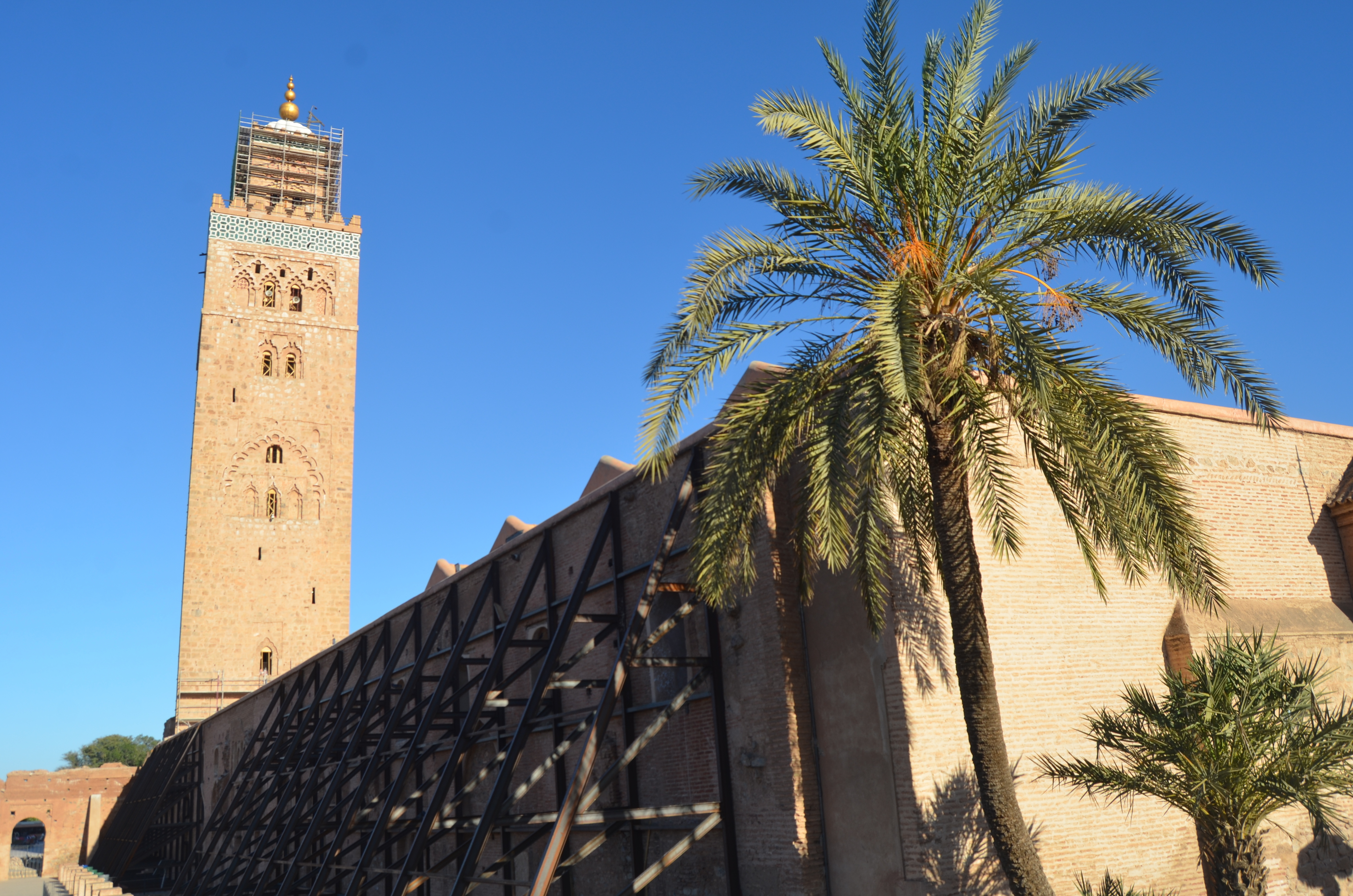
Marrakesh, Morocco – Like everyone in Marrakesh, 39-year-old Zakaria Lamnichri was surprised when the earthquake hit six months ago.
Speaking from his stall in the centre of the city, the easy flow of his conversation interrupted by queries from browsing tourists, he recalls the tremors he experienced as the magnitude 6.9 earthquake ripped through the nearby mountains, claiming the lives of about 3,000 people.
“The moment, for those who lived it, was horrifying. My wife and son were away in the mountains. I was here. I was terrified for them. For them, that terror lasted for days,” he said, describing how rescuers struggled to reach the small, isolated village where his family was staying and, like many in the High Atlas Mountains, accessible only by donkey or moped.
“No one expected it,” he continued. “No one knew what to do. What affected me especially was the emotional part, of seeing other people’s problems. Of rich people who were left with nothing,” he says, pausing.
“People who had children and lost them.”
While the epicentre of the earthquake may have been some 75km (47 miles) distant, the destruction that remains in the centre of Marrakesh is a testament to its destructive power. Equally, that the tourists have returned in such numbers is a testament to the enduring lure of the North African city.

However, for many of the people who live here, like those in the mountains, any sense of permanence, or confidence that the future may hold the same rewards and challenges as the past, has been lost.
History ends
Today, much of the rubble that blocked the passageways of the 12th-century medina has been cleared. However, for the houses hit the worst, like those in the Jewish district, or mellah, fields of loose rock now lie where homes once stood.
Karim Nassir’s house withstood the earthquake. But he remembers being bundled out into the dark, along with his wife and his seven-year-old son.
“It was very dark,” he recalls now, his son hanging off his leg. “But you could hear the houses falling down,” he said, describing the dust and confusion that filled the narrow lanes and alleyways that define much of the medina.
“A lot of families have changed their houses,” 27-year-old spice seller Abdul Samad says. “A lot of families have gone. It’s all over, look,” he says, pointing to the latticework of cracks and fissures that stretch out along the wall behind him.
“My family has changed house,” he says, describing how his family’s home had barely withstood the quake.

While the damage extends across much of the medina, even reaching as far as the landmark Kutubiyya Mosque, whose distinctive minaret adorns the thousands of fridge magnets on sale throughout the medina, the brunt was felt in the mellah, once home to about 70,000 ethnic inhabitants, reduced over subsequent years by emigration, war and history to a cluster of just 250.
Across the mellah, houses that had withstood the passage of generations lie in rubble, their inhabitants forced to live in storehouses and outhouses undamaged by the quake.
Everywhere, as it is across the mountains that look down upon the city, people talk of the loss of any sense of permanence, of waiting for the next earthquake that will destroy everything in a region that, historically, has known only earthquakes.
Tourists return
Inevitably, as news of the earthquake spread around the world, tourists cancelled their trips.
Tourism, representing approximately 7 percent of gross domestic product (GDP), is one of the key pillars of the Moroccan economy that had been all but wiped out during the global pandemic.
For a time in September at least, it seemed like any kind of sustainable recovery would elude what was Morocco’s most visited city. But as inevitably as the tourists departed, they returned.
Despite the destruction and loss of life, 2023 proved a record year, with tourism closing 12 percent up on the previous year.
Even in February, the low season by Moroccan standards, Marrakesh’s hotels buzz with the international chatter of hikers, tourists and the curious, while the alleyways and lanes of the medina are full of those seeking a little winter sun and some culture.
“Numbers dropped by around half after the earthquake,” stallholder Nourddine Idar says from the depths of the Jewish district, the wall behind him a tapestry of imitation animal hides.
“About two weeks later, they were back,” the 26-year-old said, describing the variety of visitors that pass by his shop and peruse his goods.
Cracks line the wall opposite him.
In the courtyard of one of the mellah’s two synagogues, Brian Cox and Kayleigh Singh, both in their 20s, had just arrived the day before from the United Kingdom to scrutinise an especially confident tortoise.
“We just came to see something new,” Kayleigh says.

Jack chimes in: “We heard it’s very culturally rich and the people are very nice and welcoming, too.”
The future
However, there is no denying that the medina remains shattered. Tourists must now snake their way past joints and buttresses to explore the medina’s inner reaches, just as residents have come to lie their washing upon the soaring wooden joints so that they can dry in the sun.
In the square, Zakaria combs through a box of welded metal fittings. “You know, coronavirus changed our [attitude to] life, the way you survive, the way you treat money, the way you think money will always be there, that your work will be there.
“You know, before corona[virus], we were too arrogant, or at least I was,” he says with a laugh. He looks out at the square, the competing stands and the bustling tourists.
“After what happened here, we realised that we were nothing. What we have now, we can lose a second,” he said. “It’s not about work any more. It’s about family, it’s about life, it’s about the future. People don’t (have to) die, you know. to lose their life.”







